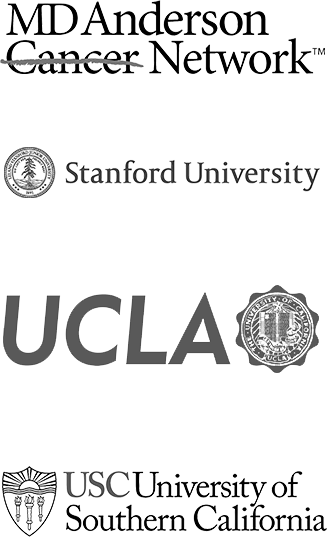Leukemia Cell Treatment
The field of genetics research and immunotherapy has made great strides in recent decades in developing previously unimaginable treatments for a range of cancers and other illnesses. With leukemia, a form of blood cancer that affects the bone marrow and the different types of blood cells, developing cell therapies and treatments may hold the key to new promise for cases with limited treatment options, or where existing therapies have shown little progress or impact in treating patients for their particular form of blood cancer.
Leukemia Cell Treatment
There are many different forms of leukemia, depending on the type of white blood cell that is affected. When the bone marrow produces too many of a particular form of white blood cell, or defective cells, it can significantly compromise the immune system and the body’s ability to fight off infections and disease. At the Cancer Center of Southern California in Los Angeles, the board-certified oncologists and blood cancer specialists perform comprehensive physical exams, medical history, and diagnostic testing to find the source of each patient’s symptoms in order to find the most appropriate and effective leukemia treatment possible.
New experiments are showing promise with genetic engineering of patient’s own T-cells, which is a type of immune cell. This treatment may provide hope for patients suffering from advanced forms of leukemia that have not responded to traditional treatments, or even relapsed after receiving some of the most effective treatments currently available, including a bone marrow transplant.
In addition to engineering the T-cells to kill cells containing a specific protein on their surface, like a built in GPS designed to target cancer cells specifically, one experiment showed the genetically modified T-cells to yield thousands more cancer fighting cells, according to a report in The New York Times outlining the results of the study at Children’s Hospital of Philadelphia. The most prominent cancer centers in the country, including Memorial Sloan Kettering, National Cancer Institute, and Cancer Center of Southern California are conducting research studies and advanced clinical trials to find ways to make it easier for therapies to target cancer cells with precision and accuracy, while leaving surrounding healthy tissue intact, and causing less trauma than chemotherapy and radiation.
Immunotherapy Treatment for Leukemia
In addition to emerging T-cell therapy therapies, the field of immunotherapy is also producing many promising new treatment options for leukemia and blood cancers, using the body’s own immune system to help fight cancer.
Some terms to know in immunotherapy cancer treatment include:
- Monoclonal antibodies
- Naked monoclonal antibodies
- Conjugated monoclonal antibodies
- Radiolabeled antibodies
- Chemolabeled antibodies
- Brentuximab vedotin (Adcetris®)
- Ado-trastuzumab emtansine (Kadcyla®, also called TDM-1)
- Bispecific monoclonal antibodies
The important thing to remember with any treatment for leukemia and all forms of cancer is that there is no one size fits all solution. The human body is unique, especially when dealing with an illness as complex and multifaceted as cancer. Finding the best leukemia treatment team possible is a priority for every patient.
Next, read about Leukemia


